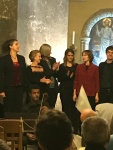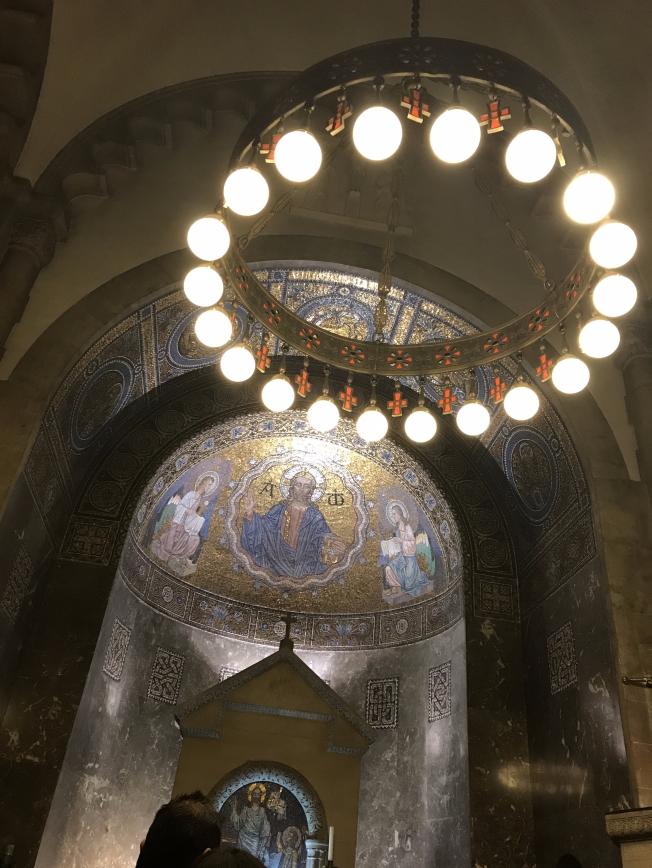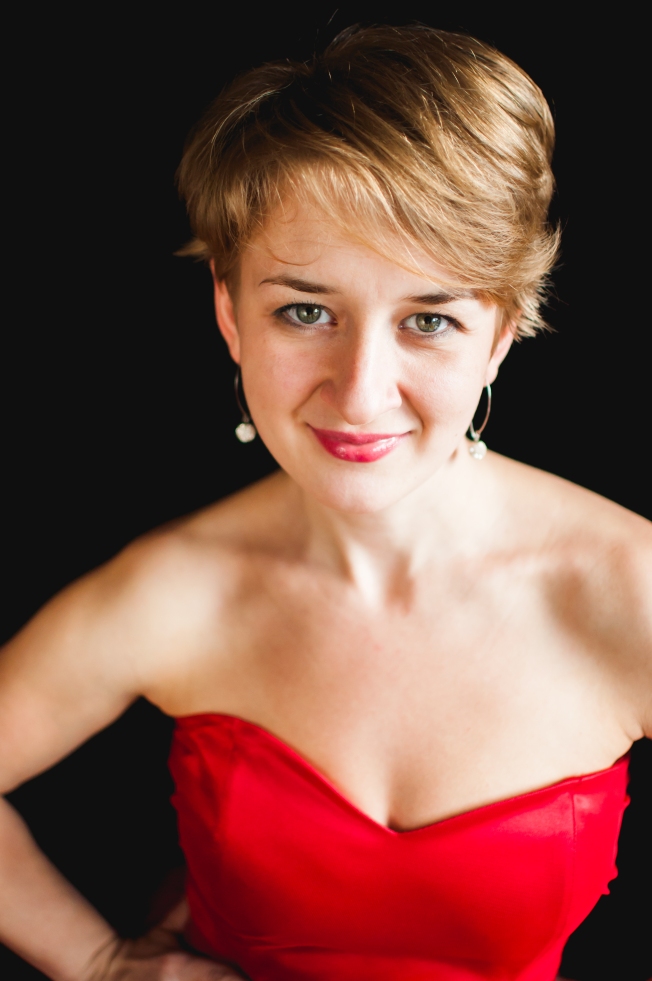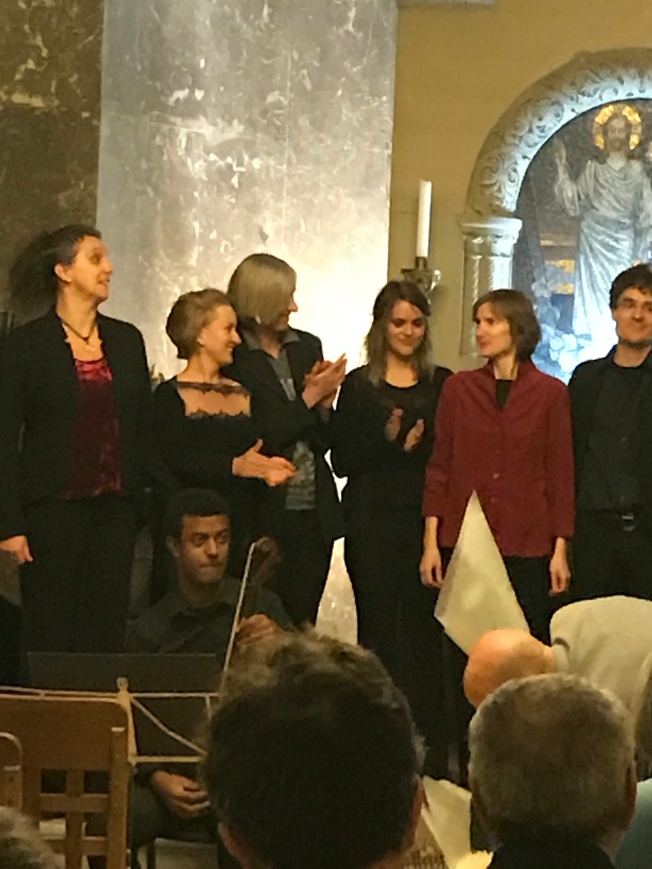
An interesting concert to celebrate the 500th year of the protestant reformation took place on the 28th of October of 2017, at the Iglesia Alemana (also known as Friedenskirche) in Madrid (Paseo de la Castellana, 6). Of Neo-byzantine design, this church once formed part of the German embassy, and is a “hidden gem” in the very heart of Madrid:

The interior of “La iglesia alemana” also known as Friedenskirche in the heart of Madrid
A cantata sung by bass Malte Frovel, accompanied by a baroque instrument ensemble of the cantata “Aus der Tiefe rufe ich, Herr, zu dir” by a contemporary of J.C. Bach, Gottfried Heinrich Stölzel (1690-1749) was a great discovery.
The concert ended with an exceptional composition newly created by Polish composer and resident of Madrid, Alina Blonska, b. 1974. This composer was commissioned to compose and world premiere a new cantata for the occasion of the 500th anniversary of the protestant reformation, being celebrated world wide by the Evanglische Kirche in Deutschland.
![IMG_9667[1]](https://spanishsongslinger.wordpress.com/wp-content/uploads/2017/10/img_96671.jpg?w=652)
The program notes of Kantate “Christ ist erstanden” (Christ has risen) state that the commission was by invitation of pastor Simon Döbrich of said church. “The principal idea gyrates around Martin Luther, and searches to bring us close to Luther’s spiritual thought, which is the ethos of the German speaking congregation at Friedenskirche. For this reason, the cantata includes fragments chosen directly from Luther’s writings. The title makes reference to the German Easter song “Christ has risen”, and which forms an important element of the aesthetic of the cantata as a whole. The piece pretends to re issue a new look towards this anachronistic genre, which was brought to its apogee in the first half of the 18th century by Johann Sebastian Bach.”
Rigorous but always elegant, the composition employed baroque instrumentation, organ (in this instance performed by Polish organist Marta Misztal), soprano and baritone. The piece began with spartan bareness, with a rising melody sung by the soprano voice in chant; the cantata continued with a layering of elements, given off a sensation of a union of anachronistic musical language (older than baroque, with allusions to medieval church chant) together with a contemporary music aesthetic that was in perfect balance and accord for a celebration in modern day of Martin Luther’s vision. Under the direction of Alejandro Trapero, the ensemble sounded balanced and in sync. The wonderful acoustic at Friedenshkirche was an attractive frame for the piece. My colleague Urzsula Bardlowska’s lyric soprano exhibited a rounded and attractive tone which reminded me very much of the young Lucia Popp. The Venezuelan baritone John Heath sang his lines with emotion (which by contrast to the soprano’s melodies, contained a more contemporary line), exhibited to my ear the more earthy aspects of the philosophy or message of the cantata.

Polish soprano Urszula Bardlowska

Pictured to the left and in red is composer Alina Blonska after the premiere of her cantata, “Christ ist erstanden”